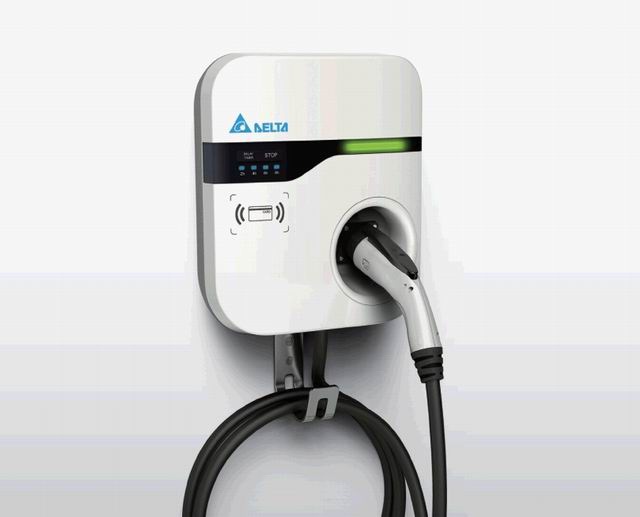Delta Electronics' EV AC Charger UL Certified in North America
2013/05/16 | By Quincy LiangDelta Electronics, Inc. of Taiwan, a major maker of power supply and thermal management solutions, recently announced that its 240V/30A AC Level 2 electric vehicle (EV) charger pulled ahead counterparts made on the island to be UL2594 certified, mandatory to build EV charging stations in North America.
Delta's new charger, coupled with a new-generation on-board charger, fully recharges EVs in three to four 4 hours, halving recharging time. With standard consultation service and testing technological support from UL (Underwriters Laboratories) of the U.S., a product safety testing and certification body, Delta said it is the first Taiwan-based company to penetrate the North American EV charger market.
According to Herman Chang, general manager of Delta's charging and microgrid solutions business unit: "Based on Delta's advanced power management core technologies, we have successfully developed both normal AC and quick DC chargers with smart features along with the Delta Site Management System (SMS). Recently, Delta has successively delivered highly efficient, safe and convenient EV charging solutions in Taiwan, Thailand and Norway."

According to Delta, its EV AC charger has stylish ergonomic design, NEMA (National Electrical Manufacturers Association) Type 3R ingress protection, IK8 vandal-proof casing, can either be wall-mounted or pedestal-mounted to be flexible for different environments. With the SMS, users can manage charging station efficiently and check charging status any time.
Meanwhile the integrated delay timer enables users to take advantage of off-peak hours to charge EVs at lower rate for cost savings. Delta's AC charger also has a radio frequency identification (RFID) card reader for user authentication, helping the user to optimize charging facility management.
According to Ralph Tang, general manager of UL Taiwan, electric products must prioritize safety to avoid current leakage and shocks. For Taiwanese EV charging product companies, he says, the major hurdles are to reliably prevent shocking users and vehicle communication issues. Besides being a general safety guideline, UL2594 also applies UL2231 standards to specify electric shock prevention and safety requirements. Meanwhile, electric shock prevention relies on product software control and hardware design, with software safety control hinging on a degree of reliability. “Delta has passed rigorous tests to be UL certified to show Taiwan-based companies' R&D can compete globally," Tang says.




